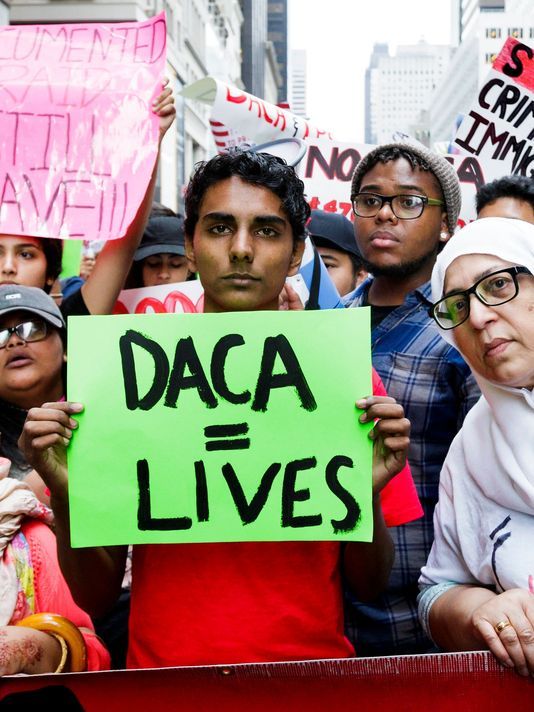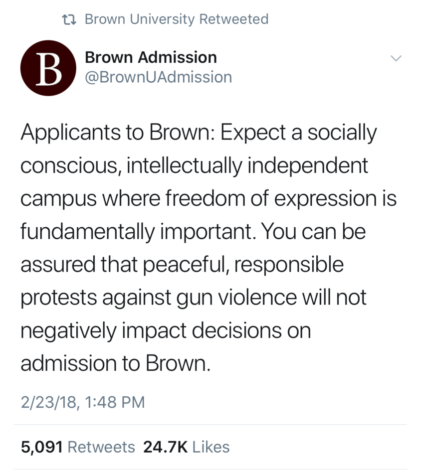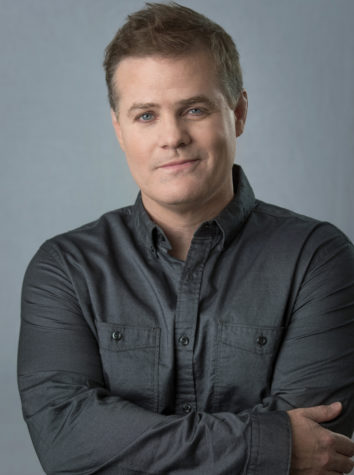Opinion: Tearing Families Apart
Early last month in an Oval Office meeting, President Trump rejected a bipartisan immigration deal. The proposal involved protecting immigrants from temporary protected status (TPS) nations, such as Haiti and various African countries.
Trump then allegedly proceeded to label these countries with a racially charged degrading expletive, and said the U.S. heads need to bring in more people from countries such as Norway.
It’s interesting to note that applicants to the diversity visa program, which attracts a lot of African immigrants, are required to have the equivalent of a U.S. high school education or two or more years of experience in an occupation. Therefore, African immigrants tend to be immensely skilled and well-educated.
In fact, 41 percent of these African immigrants above age 25 possess bachelor’s degrees. And one in every three of these degrees are in a STEM-related field, which, as we all know, are wildly lucrative and essential for growth and innovation in our country.
Aside from the blatant racially charged nature of Trump’s rhetoric, this exemplifies the heated climate in Washington as Congress struggles to come to a deal on replacements for Deferred Action for Childhood Arrivals (DACA) protections (those protected under DACA are known as Dreamers).
If immigrants are unable to live and flourish with their loved ones, they would have considerably less incentive to live here and contribute to our economy. Instead, we would lose them to countries with more lenient family immigration policies.
The rationale for wanting to crack down on the family-based immigration system is that such a system results in chain migration, creating a glut of immigrants that our country cannot sustain.
The problem with this notion is it’s not possible. It is, simply put, a myth.
In reality, the concept of chain migration cannot occur because waiting lists for family visas are too long for a chain to realistically take shape. In fact, the system is extremely backlogged.
Juvenal Escobar, senior, can attest to this. He has immigrant parents and knows a lot of families that are also immigrants.
“Unless the situation for an individual would be so bad, like in Venezuela, I wouldn’t see any other way where they could bring in so many people because the process takes so long. It takes decades. That theory doesn’t make any sense,” Escobar said.
Aside from simply being false, this demonizing of the family-based immigration system is detrimental to our nation’s economy.
The Institute on Taxation and Economic Policy estimated that unauthorized immigrants contributed more than $11.6 billion in state and local taxes each year. If these immigrants were put on the path to citizenship, just imagine how much these contributions could grow.
In addition to that, immigrants often come to our country during their best working years and tend to make contributions in the form of endeavors such as entrepreneurship.
In fact, according to the Small Business Administration, immigrants are 10 percent more likely than non-immigrants to own and operate a business. The same study also found that immigrants start businesses at double the rate of non-immigrants.
Escobar’s father owns a landscaping business. He crossed the border illegally with a group of people at age 15 and started working in various manual labor positions in Dallas. By the 1980s, he was working on a farm in Illinois.
The man who owned the farm sponsored him to get his permanent resident status. He was forgiven for crossing illegally and was granted amnesty courtesy of the Immigration Reform and Control Act of 1986. He needed to present himself to U.S. Immigration and Customs Enforcement periodically to gain his permanent resident status.
“They saw he was committed to being here and didn’t do anything bad and was here to work,” Escobar said. His father was initially granted 10 years and continues to renew his green card when needed.
Escobar considers his father’s background a vital part of his family identity. With this being so important, he understands the plight of the Dreamers.
“I won’t have the same difficulties or hardships as Dreamers, but I understand,” he said. “My friends from Mexico that have lived here their entire lives, this is all they know. To be deported, it would be like getting dropped off on a martian planet. It doesn’t make sense. They want to tear families apart.”
Your donation will support the student journalists of Marquette High School. Your contribution will allow us to purchase equipment and cover our annual website hosting costs. You may become a PATRON by making a donation at one of these levels: White/$30, Green/$50, Blue/$100. Patron names will be published in the print newsmagazine, on the website and once per quarter on our social media accounts.

Austin Woods, senior, is the Associate Editor in Chief for the Marquette Messenger. Along with his involvement on the Messenger, Austin is involved in...






